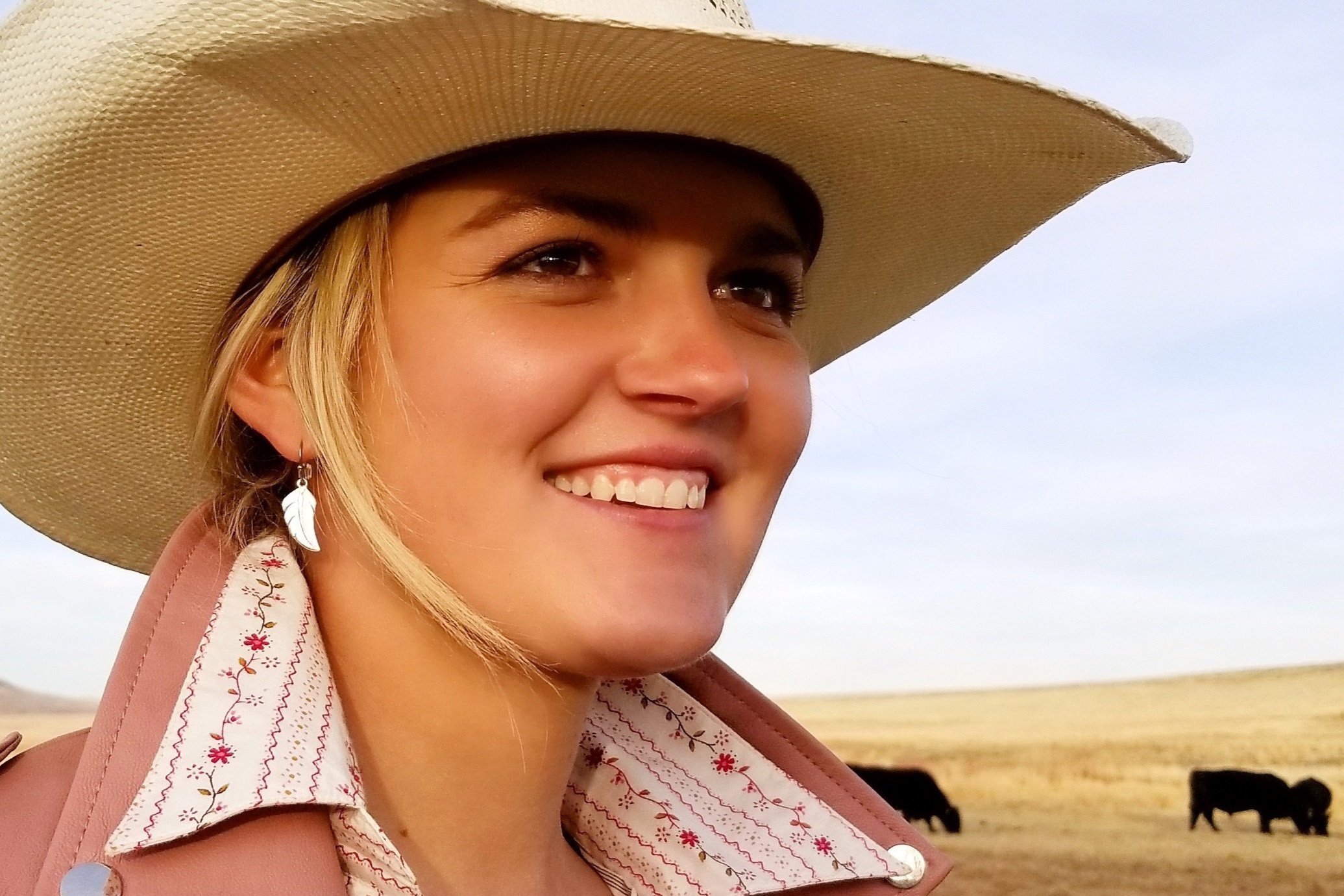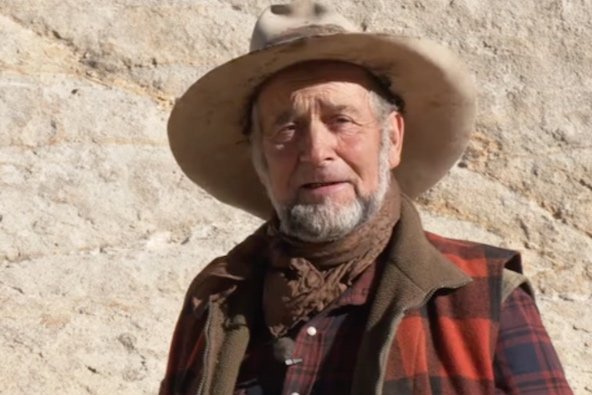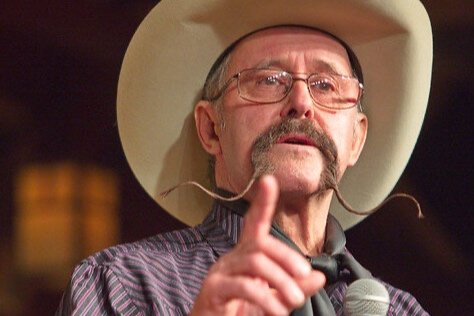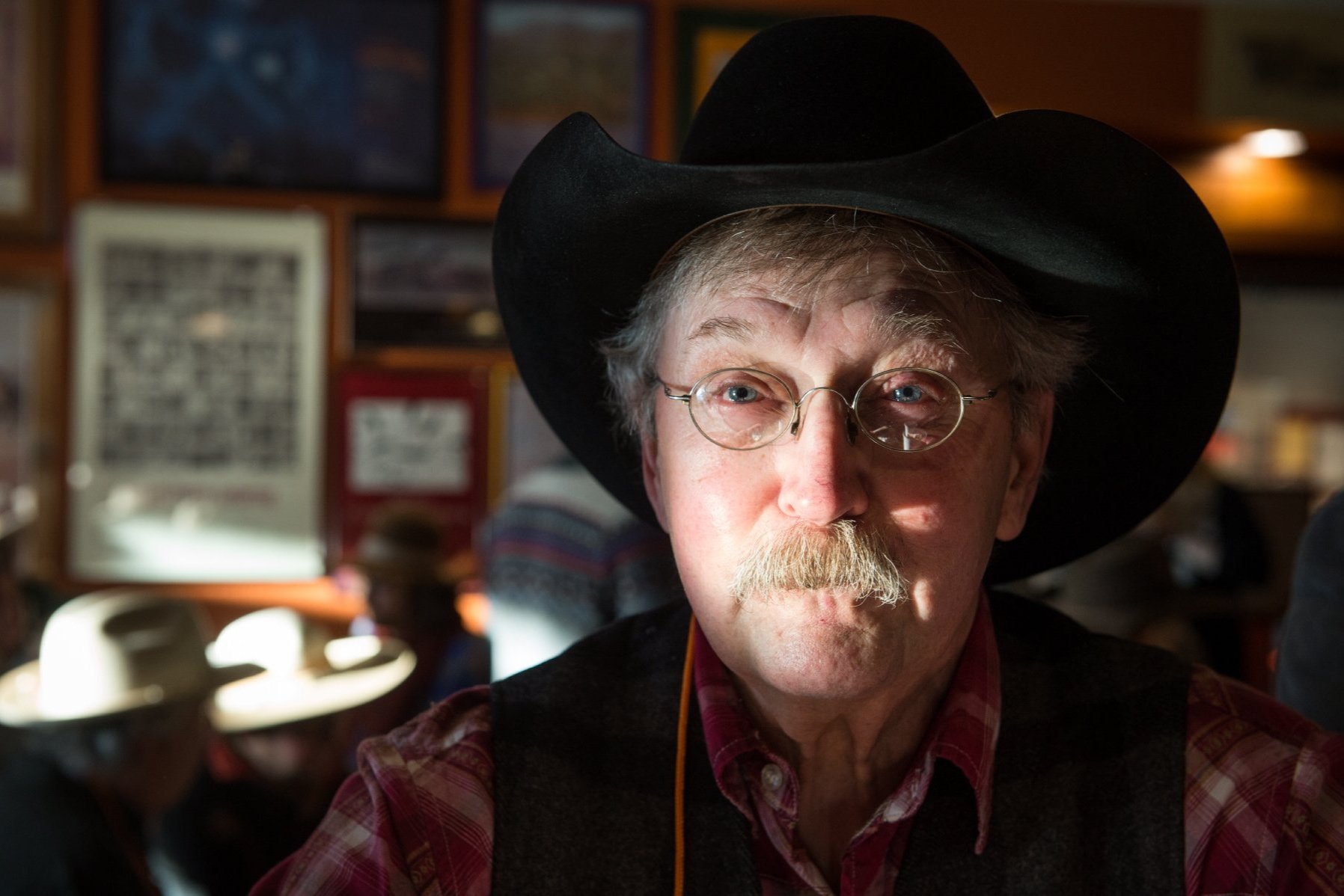Got a Question?
JUNE 2023
With the change of season comes a changing of the guard at Ask a Cowboy Poet. We’d like to thank Virginia Bennett for her thoughtful, descriptive, and moving contributions to the column. From her memory of her first Gathering to her thoughts on what constitutes a cowboy poem to her attunement to nature, she brought a story and a poem to fit every occasion.
As Virginia steps out, Annie Mackenzie steps in. We’re thrilled to have Annie providing fresh perspective as the newest advice-giver in the Ask a Cowboy Poet ranks. Welcome, Annie!
And now, for the matter at hand. This month, it’s a question of the rhythms a cowboy is intimately acquainted with at work and the rhythms that a cowboy puts to words. How much do these rhythms share? And, just how much does a cowboy share with their horse? The question comes from our Instagram follower @carteagraphy. While they did not win the randomly chosen giveaway contest last month, they sent in so many good questions that we just had to put one before the pros.
Does your horse's gait affect your writing, and do you read out loud to your horse?
–@carteagraphy
Annie Mackenzie:
“Part of cowboying is learning the language of the animals you work with every day…”
I have been told that my poems sound like they were written at a trot, but it's not something that I pay much mind to. They just sort of show up in my head and then I do my best to get them scribbled down before they're gone. I do sometimes write poems out loud when I haven't got something to write on, which means repeating lines over and over again so I don't forget them...which I'm sure my horse does not appreciate! I got caught once writing a song like that and I'm much more wary about it now. Honestly, when I ride, it's mostly in silence. I do some pondering and a lot of arguing with myself, I lose every time. But in all seriousness, I enjoy the quiet of riding. Part of cowboying is learning the language of the animals you work with every day, and they don't speak much either.
Dick Gibford:
I have a big post dally horn on my saddle that's a pretty good platform to set a notebook for writin’, but I prefer to write when back in camp and things are pretty much not movin’. I usta have an old grey cat that would sit at the far end of my bed and act like he was listening to me while I practiced my new poems on him. When a fellar lives alone most all the time it's comforting to have a cat or dog around. Then I dont think I sound like I am goin’ crazy, if I am just recitin’ to the wall. That’s about all I can think of to say except, just so folks are aware of it, I don’t have internet and don’t want it. Texting on my old, antiquated flip phone is as far out of the stone age as I have ventured to come. I kinda like it that way.
Waddie Mitchell:
“…the sound of a steady gait somehow encourages an honesty in one's thinking, like a fire does.”
I have written in many gaits to help fit the mood I am trying to set, but I have, more than not, written of the other sensory delights going on with the gait. Like what's going on with the horse or the breathtaking spot on earth you are in. I will admit though, the sound of a steady gait somehow encourages an honesty in one's thinking, like a fire does. I don't read out loud very well, so no I don't read to horses, they're bad about making fun of me and they're bad to gossip, and my reputation amongst horses is bad as it is.
Yvonne Hollenbeck:
My horse’s gait does not affect my writing because I no longer ride. My husband is horseback every day, but not I. Writing poetry is more involved than something that is influenced by a horse’s gait. No, I do not read to my horse.
Bill Lowman:
“When I'm checking cattle, bulls, and water on a green broke bronc, poetry is on the other side of the planet.”
No, not at all. When I'm checking cattle, bulls, and water on a green broke bronc, poetry is on the other side of the planet. Concentration on the present business at hand takes priority. On a trustable old pardner, possibly it subconsciously relaxes a person’s mind, but the spontaneous poems come from other events to record, not my horse’s gait. Negative impulses, very low cattle prices, drought, and four dozen annual payments facing me. Positive poems arrive on their own when the opposite occurs, topped off best when I slicker up, swing on, and take a long, slow range check during a slow, three-day June "soaker." There's no therapy better to relax the mind and ideas flow free. My horse doesn't want to hear them. A good bait of oats back at headquarters is all that's on his mind.
DW Groethe:
Fun question. I have a couple of poems that were inspired by late night riding and the sound of hooves hitting the trail. Here's a short one:
Silence
There's a silence that's found
As a hoof hits the ground
When you're riding alone in the night.
And the dust of the day
Has settled away and
you're glad that ol' moon has some light.
Tho, you ain't ridin' blind
'Cause your pony'll find
The trail that leads you back home.
'sides, you're mind is a'driftin'
Like the blue shadows shiftin'
Thru the sage an' the cedar an' stone.
The breeze heaves a sigh
Like a ol' lullabye
An' it all sets your spirit aright...
In that silence that's found
As a hoof hits the ground
When you're ridin' alone in the night.
——-
As far as the reading end of it goes, nope, but I do have a tendency to talk with any critter I might be around. I think most ranch folk do. Thanks for asking.









